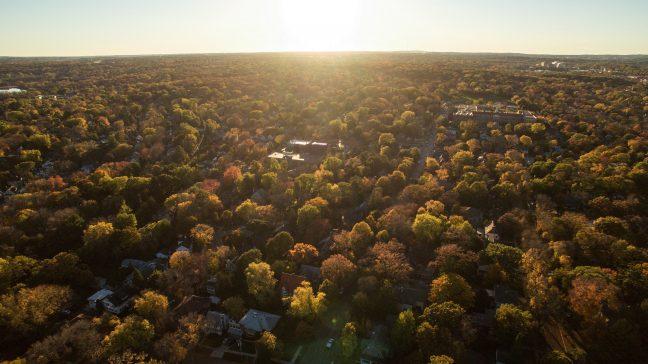In a press conference Tuesday, Madison Mayor Paul Soglin announced the Wisconsin Housing and Economic Development Authority approved $25.8 million in tax credits on five appeals for affordable housing development projects in Madison.
A total of 281 affordable units were accepted for production this year, bumping the total number to more than 700. This puts Madison on track to reach the five-year goal the city established in 2014 to build 1,000 affordable housing units, 250 of them for homeless individuals.
“This is more than just talking about serving the homeless population,” Soglin said. “There are hardworking people who need to make a living to sustain a family, and they cannot do it unless there is affordable housing for working people.”
The strategy’s initial plan aimed to create “supportive housing” for homeless residents of the city, build affordable units for citizens from a variety of income levels and expand upon existing rehabilitation and down payment assistance programs, according to the Affordable Housing Strategy Report.
Jim O’Keefe, director of the Community Development Division of the Community and Neighborhood Development Program, said this program’s success was in part a result of strong governmental support of the applicants.
“The city had almost eight million dollars invested in those projects, so there’s really no question that city financial support gives those projects a boost,” O’Keefe said.
Five out of six of Madison’s proposals were accepted and O’Keefe said one factor contributing to this was the proximity of these properties to public transportation, health care facilities and parks. He said developers who applied this year also had considerable experience in building affordable housing units.
Affordable housing consists of income and rent restriction O’Keefe said. Income restriction dictates who is allowed to live in these units and it usually includes those who make 60 percent of the median household income of the county, which is approximately $46,000 for a family of three. Rent restriction, conversely, protects tenants from inflating rent prices and cannot cumulate to more than 30 percent of a resident’s income.
After reaching their goal, Soglin and the City of Madison plan to continue with the program and move forward in trying to help more residents find affordable housing options.
“There’s certainly a need for more than 1,000 units of affordable housing,” O’Keefe said. “We hope to build onto the success we’ve had in the past couple of years.”


